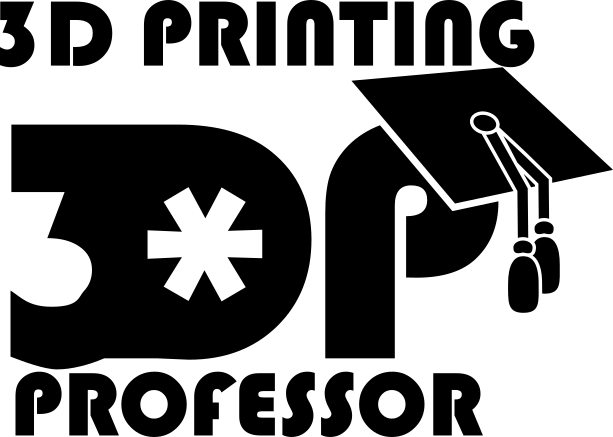Aside: I hadn’t meant for this video to go up when it did. I accident used HitFilm’s direct upload capability, and I am not going to do that again. Not only did the update go up before I was ready to have it out there, it totally messed up settings on the video make it more trouble than it’s worth to fix. But now I know and fortunately it happened on what was essentially a fluff video. Okay, on to the actual content.
 |
| Yes, 3D printing is super exciting! |
Welcome to 3D Printing 101. This series is designed to get someone from “I know nothing about 3D Printing, but I’m super excited” to actually using 3D printing to make cool things and solve problems.
I’m the 3D Printing Professor and I’ve been using low cost home and prosumer 3D printers for years both professionally and in my personal life. I have thousands of hours 3D printing and have experienced every success and problem along the way. I really want everyone to be able to use 3D printing successfully.
If you own a 3D printer, this series is for you. It will have some excellent information that you will need to know to get up and running and over the hurdles that may be slowing you down. Modern 3D printers, especially the cheaper ones, can be frustrating to use at times and it takes a combination of art and engineering to get the most out of them. This series will cover the majority these main topics..
You don’t need to own a 3D printer to use 3D printing. This series will also cover how to get the 3D prints you want and need if you don’t have a 3D printer.
Here’s the outline for this series:
- Safety First
- “I want a 3D printer”
- What 3D printer to buy
- How to 3D print without a 3D printer
- History of 3D printing
- Types of 3D printing
- The FFF process
- Setting up your printer
- Slicer basics
- Where to find 3D models
There’s a lot of lecture-type discussions to have, but this series will focus on the useful information first. Safety is always first and it’s good to know the potential dangers associated with 3D printing. Then, let me share the most common discussion I have with people about 3D printing in a section I like to call “I want a 3D Printer”. The next most common discussion I have is which 3D Printer do I recommend, a hard question to answer without being immediately outdated. Then we’ll detour into some of the history and a knowledge dump about what types of 3D printing are out there. If you buy your own 3D printer it will probably use a technology known as FFF (or FDM, same thing) and so it’ll be good to know a little bit about that process.
The last 3 sections will assume you’ve decided to get a 3D printer for yourself. Congratulations! When you get that printer you’ll need to set it up, both hardware and software. We’ll go a little bit more into depth about what a slicer does and how to use it. Finally, we’ll discuss where you can find 3D models to print, because what good is a machine that can make anything without something to make?
After this series, the next one will focus a little on making 3D models to print, various software, and modeling techniques so you can solve your own problems from scratch. I hope you’re looking forward to that.
I hope you’re as excited about this series as I am. I hope you’ll support me on this project. I hope you don’t mind me passing the hat, but you can support me with a small monthly donation on Pateron. If that’s not your thing, that’s fine. You can also let me know you like this series, leave a comment, give me an idea for improvement, or share on social media with your friends and family, I’d love to hear from you, and which of them might be totally into this sort of thing. As always, safety first, and thanks.


